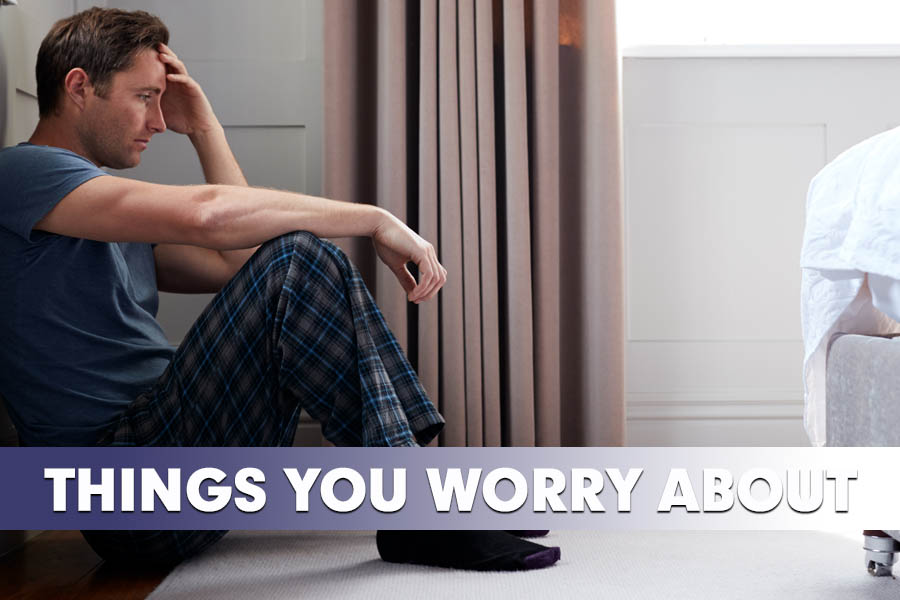Today, mental health experts say that when people worry and get anxious over every little thing then they will not be ready to face the normal challenges in life. A study by Penn State University in the journal Behavior Therapy states that many of the things that people are worried about almost never even happen.
The study surveyed 29 people with generalized anxiety disorder (GAD) to write everything they are worried about for one month. The participants recorded the outcomes of the things they were anxious about. The study found that 91% of people’s worries did not happen. For many of the people who participated, none of the things they were anxious about came to pass which is significant.
In rare situations where the participants worry came to reality, the outcome was better than what they were worried about. When the participants were shown the findings of the study, they were able to deal with anxiety symptoms better.
Almost 3 per cent of Americans have GAD, according to the Anxiety and Depression Association of America. GAD is known as finding it difficult to control worrying while also experiencing symptoms like nervousness, increased heart, problems sleeping, or trouble focusing.
Worrying is not helpful
The study focuses on people with anxiety disorders who understand that they have a tendency to worry but focus on the fact that the worst things can actually happen. By showing to them that even what they are worried about will not happen as often as they believe it will or even if it did, the outcome is always better than what the mind anticipates it to be, this tells them that worrying is not helpful.
However, the study only included worries that could be proved or disproved within a month period. Things like, “I am worried about failing my test,” but not long-term things like, “I am worried that I will never meet the right person.” Yet, this still proves to people that their short-term worries are mostly invalid and can help lower their total burden of anxiety.
This exercise is helpful for people who do not have a diagnosed anxiety disorder. Writing down their worries and negative predictions and test them out to see how often they are accurate.
Another stress-reducing technique is to put aside a block of time each day of worrying. A lot of people find it easier to take their mind off a worry if they give themselves time and place to worry about it. This technique does not only help people escape from all day anxiety, but when the set time to worry rolls around, many realize what they were worried about earlier in the day is no longer a concern.
Identify Anxiety Triggers
With anxiety, there is no one solution that works for everyone. Anxiety often takes years to build up, but with the mix of proper techniques, and maybe a therapist’s attention, it can be reduced.
Unpleasant thoughts and negative emotions are part of human nature. Finding a way to deal with it that works for you and taking it one day at a time will go a long way.
It is important to identify what triggers your own anxiety. Sometimes they can be obvious such as caffeine, alcohol consumption, or smoking. Other times it can be less obvious such long-term problems. These can include financial instability or work-related situations. These may need extra support through therapy or a good friend or a support network.
When you find out what triggers your anxiety, it is important to limit your exposure to it, if you can. If you cannot limit your exposure to what causes you anxiety, you should try using other coping methods.
Some coping methods include, exercise, meditation, dietary changes, or medication.
Everyone has different triggers and identifying those triggers can help with the process of coping and managing anxiety. Not only that but identifying your triggers can take some time and self-reflection, which helps with the process of getting to know if there are one or more factors that cause you anxiety.
Anxiety Triggers:
- Stressful job or work environment
- Genetics – anxiety could run in the family
- Withdrawal from drugs
- Side effects of certain medications
- Trauma
- Phobias
- Chronic illness
- Chronic pain
- Other mental health illnesses
- Caffeine
According to Healthline, anxiety is the umbrella term for the general feeling of worry or nervousness. It is often a feeling in response to an upcoming life event that has an unclear result.
Everyone deals with anxiety one way or another because it is a natural part of how our brains response to perceived danger – even if it is not real danger.
However, sometimes anxiety can be serious and could turn into anxiety attacks, that feel manageable at first, but will build up over the course of couple of hours. Note that, anxiety attacks are different from panic attacks, which are very sudden.
Anxiety Attacks Signs:
- Feelings of danger or dread
- Nervousness
- Rapid heart rate
- Sweating
- Chills
- Weakness
- Gastrointestinal problems
- Trouble concentrating
- Hyperventilation

